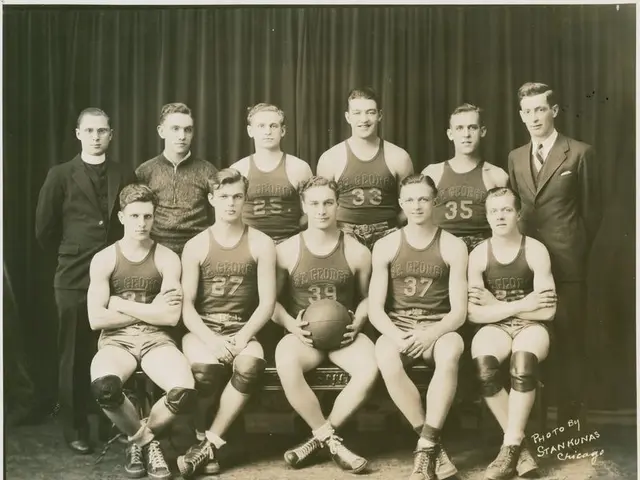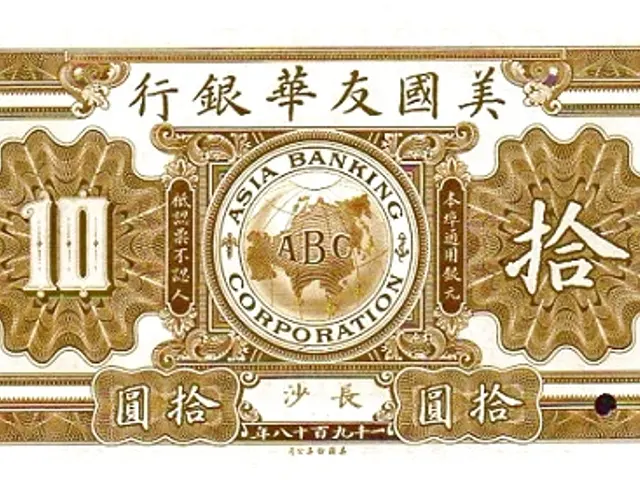U.S. Proudfully Honors Its Pope; Not Universal Acclaim
Pope Leo XIV, initially known as Cardinal Robert Francis Prevost, broke new ground in the Catholic Church as the first American pope. Born and raised in Chicago, Pope Leo is an Augustinian friar with a reputation for diplomacy and wisdom.
Political Beliefs and Influence
Pope Leo's political views are not overtly discussed, but he has shown support for unity, dialogue, and peaceful coexistence, values that echo the Church's long-held stance on global issues. In his inaugural speech, he emphasized the importance of standing together, striving for peace and justice, and remaining faithful to Jesus Christ without fear.
Religious Fervor
Rooted in the Augustinian tradition, Pope Leo graduated from Villanova University, which focuses on St. Augustine's teachings related to the balance between faith and reason. As an Augustinian friar, his religious beliefs are centered on personal devotion, education, and pastoral service, reflected in his humble, gentle, and caring leadership style.
American Reaction
The election of Pope Leo XIV has stirred a range of reactions among Americans:
- Catholic Community: The selection of an American pope symbolizes a sense of recognition and representation within the worldwide Church, potentially fostering more dialogue and influence between the Church and U.S. society.
- General Public: Though specific sentiments from the broader American populace are not well-documented, the historical significance of an American pope may pique interest and curiosity about the Catholic Church, possibly fostering increased understanding and involvement.
- Media and Public Figures: Media coverage of the event underscores the extraordinary nature of this appointment, expressing a mix of shock, awe, and hope regarding its potential impact on the Church's global role and U.S.-Vatican relationships.
In Rome, the Catholic Church's historical significance is palpable, especially as the election of the first American pope was announced. With two thousand years of history eclipsing the U.S.'s fewer centuries, many see the choice of an American pontiff as the Church's decision to embrace the contemporary world.
The election of Pope Leo XIV comes just a few months after the departure of President Joe Biden, the second Catholic president of the United States. Coincidentally, the election of the first American pope brings a sense of continuity to U.S.-Vatican relations, further emphasizing the old friendship between the U.S. and the Catholic Church.
- The Commission has also been asked to submit a proposal for a directive on the protection of the environment, reflecting Pope Leo XIV's inclination towards embracing contemporary concerns.
- The irony of a pop-culture and sports enthusiast, particularly basketball and the NBA, ascending the papal seat has not been lost on social-media commentators.
- Despite the initial focus on his American origins, Pope Leo XIV's diplomatic and wisdom-laden leadership style has commanded respect from even outside the Church and drawn comparisons to notable American politicians.
- Pope Leo XIV's humble and caring leadership style is reminiscent of his Augustinian beliefs, raising hopes in some circles that he might offer fresh insights on policy-and-legislation issues, including social justice and environmental conservation.
- Congratulations from various corners of the world have been pouring in for Pope Leo XIV, including nods of approval from celebrities and prominent figures in entertainment and politics.
- Some critics, however, argue that the election of an American pope might create tensions between the Church's traditional values and modern, more secular American values, stirring debate on the role of religious institutions in policy-and-legislation.
- Pope Leo XIV's unique background and approach to leadership are expected to bring a new dimension to the Church's global presence, illustrating how pop-culture and theological perspectives can converge in shaping contemporary Christianity.
- The election of an American pope is seen as a bold move by the Catholic Church, signaling its readiness to engage with the challenges of the contemporary world, and setting the stage for interesting and thought-provoking dialogues in fields as diverse as politics, entertainment, general-news, and sports.








